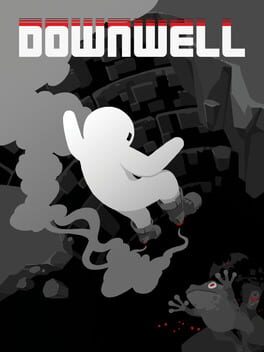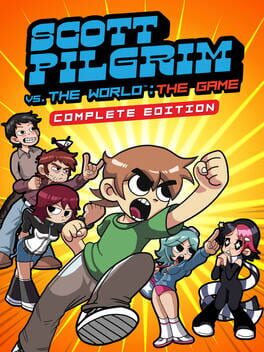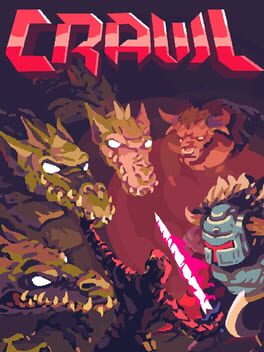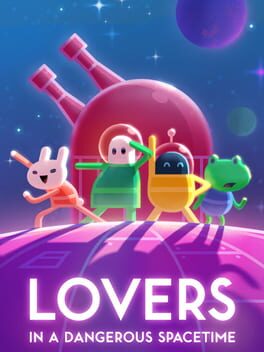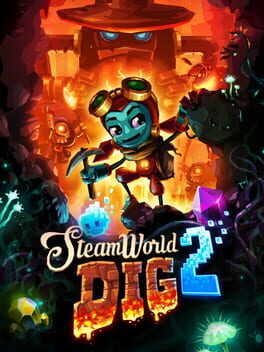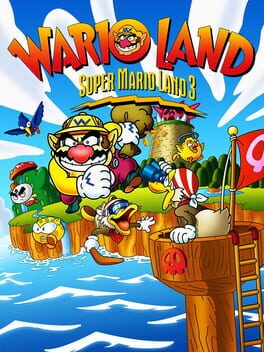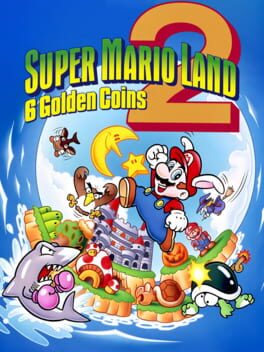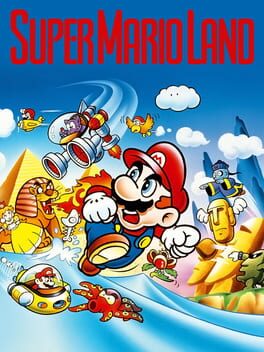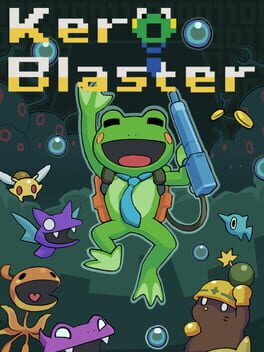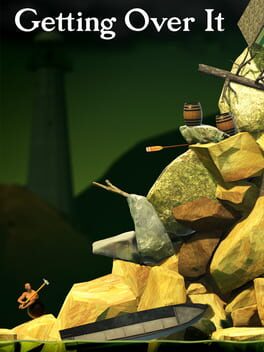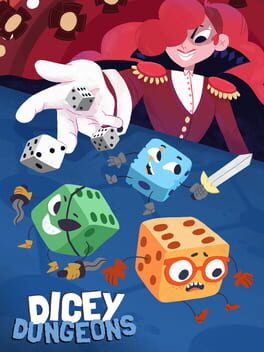AutumnLily
2015
2021
It's fascinating to me how much Metroid Dread's greatest strength and its most disappointing weakness are intertwined. I love Metroid Dread's approach to linearity. The journey from the game's start up through ZDR to Hanubia will for most people be a straight line of sorts, the game always funnelling you towards an intended route, but it rarely feels like a straight line. Terrain will be redefined either in smaller instances or via impressive set-pieces to guide you onwards, even smaller item pick-ups are sometimes placed with leading you in a specific direction post-upgrade in mind. This aspect isn't perfect, there are times where you push at the edges of your surroundings a bit too hard and discover how boxed in you actually are, or where the game is a bit too keen to withhold rewards for your attempted backtracking and exploring, but for the most part it's remarkable how much the game maintains a sense of forward momentum, a constant stream of progress and discovery, without feeling as linear as it truly is as it repeatedly twists in on and redefines itself. In this regard Metroid Dread's level design kind of rocks.
Metroid Dread's level design also just kind of sucks. I can't remember the last time I played a Metroidvania game that failed so badly at making me feel a physical attachment to the world I'm wandering through, each of the areas of the game feels somehow at once both divorced and homogenous. I couldn't tell you, even after having beaten the game and backtracked for most of the power-ups, how each of the areas actually relates to one another; each section feels less like a part of an interlinked, believable world and more just like its own little videogame level. This is exacerbated by the game's love of warp points that take you from one arbitrary part of one zone to some far-flung corner of another; these feel necessary to make the game's approach to linearity succeed like it does, but come with the cost of making the world of ZDR feel much more explicitly videogamey than previous Metroid titles, and never allowing for the physical reality of this world and how everything links up to imprint upon you. ZDR never comes even vaguely close to feeling like a real world.
And yet all at the same time, this world blurs together. Part of this comes back to the warp points excitedly plucking you out of one zone into another, mixed with the constant forward momentum, meaning that you're given little time to build up a defined relationship to many of these biomes. More problematic though are the EMMI sections. Much has been said about these parts of the game and how hard it is to reconcile how great many of the moments of horror and tension found here are with how much these sections lean on a frustrating trial-and-error approach. My quibbles lie more just with the aesthetic though. Every EMMI section looks pretty much the same, and every biome tries to naturally loop you in and out of their respect EMMI zone a handful of times through patterns of tension and then relief naturally building towards their exciting climaxes when you're finally able to deal with that EMMI once and for all. It's a great gameplay pattern, but when mixed with the sterile aesthetic of these EMMI zones it's hard for ZDR to not just visually homogenise in your memory as a result, a blur of inhospitable, bizarrely zig-zaggy, blank white hallways.
Despite all of this, I still had a good time with Metroid Dread. The world left little impression on me, and the story is a mess, but as a rollercoaster ride of sorts Dread hits a lot of beats very well. Samus has never controlled quite this fluidly before, which isn't to say that Dread controls better than previous iterations (Super Metroid's movement is uniquely suited to that game's world design and atmosphere in a way that would make trying to put Dread's movement in that game feel misguided and crude at best), but it certainly is nice how easy it is to just drop into the game, how smoothly movement flows and how well the myriad abilities get to seamlessly function in tandem with one another. Even parts of the movement design that it feels like I should dislike just work; Metroid never needed a parry mechanic, but this one feels incredibly satisfying to land, suits the game's more action-orientated tone, and even the quick-time events that take advantage of it are used tastefully. There's a fair amount wrong with Metroid Dread, but ultimately a lot of it is also just really good fun and you can do a lot worse than that.
Metroid Dread's level design also just kind of sucks. I can't remember the last time I played a Metroidvania game that failed so badly at making me feel a physical attachment to the world I'm wandering through, each of the areas of the game feels somehow at once both divorced and homogenous. I couldn't tell you, even after having beaten the game and backtracked for most of the power-ups, how each of the areas actually relates to one another; each section feels less like a part of an interlinked, believable world and more just like its own little videogame level. This is exacerbated by the game's love of warp points that take you from one arbitrary part of one zone to some far-flung corner of another; these feel necessary to make the game's approach to linearity succeed like it does, but come with the cost of making the world of ZDR feel much more explicitly videogamey than previous Metroid titles, and never allowing for the physical reality of this world and how everything links up to imprint upon you. ZDR never comes even vaguely close to feeling like a real world.
And yet all at the same time, this world blurs together. Part of this comes back to the warp points excitedly plucking you out of one zone into another, mixed with the constant forward momentum, meaning that you're given little time to build up a defined relationship to many of these biomes. More problematic though are the EMMI sections. Much has been said about these parts of the game and how hard it is to reconcile how great many of the moments of horror and tension found here are with how much these sections lean on a frustrating trial-and-error approach. My quibbles lie more just with the aesthetic though. Every EMMI section looks pretty much the same, and every biome tries to naturally loop you in and out of their respect EMMI zone a handful of times through patterns of tension and then relief naturally building towards their exciting climaxes when you're finally able to deal with that EMMI once and for all. It's a great gameplay pattern, but when mixed with the sterile aesthetic of these EMMI zones it's hard for ZDR to not just visually homogenise in your memory as a result, a blur of inhospitable, bizarrely zig-zaggy, blank white hallways.
Despite all of this, I still had a good time with Metroid Dread. The world left little impression on me, and the story is a mess, but as a rollercoaster ride of sorts Dread hits a lot of beats very well. Samus has never controlled quite this fluidly before, which isn't to say that Dread controls better than previous iterations (Super Metroid's movement is uniquely suited to that game's world design and atmosphere in a way that would make trying to put Dread's movement in that game feel misguided and crude at best), but it certainly is nice how easy it is to just drop into the game, how smoothly movement flows and how well the myriad abilities get to seamlessly function in tandem with one another. Even parts of the movement design that it feels like I should dislike just work; Metroid never needed a parry mechanic, but this one feels incredibly satisfying to land, suits the game's more action-orientated tone, and even the quick-time events that take advantage of it are used tastefully. There's a fair amount wrong with Metroid Dread, but ultimately a lot of it is also just really good fun and you can do a lot worse than that.
2017
Played a couple games of Crawl with friends and sadly didn't get on with it, despite liking some of what it is going for. It felt very easy for things to snowball hard, especially if someone can get to the shop first and get an early agility potion, whilst conversely the catch-up mechanisms that do exist can verge on unpleasant Mario Party-style nonsense; getting my entire inventory and gear load-out stolen from me late into the second game we played, and subsequently feeling like I'd wasted all that time and effort acquiring those items, was around the moment I just felt completely done with this game.
I also just found the game weirdly exhausting? There are times where whoever is alive will have decisions to make, such as when they're in a store, and the ghosts won't have that much to do. In an attempt to alleviate this ectoplasm will spawn all around the screen for the ghosts to collect so that there's something still happening for the ghosts to focus on, but this had kind of the inverse effect of what was intended of just tiring me out by forcing me to stay constantly engaged rather than letting me roll with some of the natural lulls in action.
There's probably more of worth to be found in this game than this score lets on, but I am soundly off it.
I also just found the game weirdly exhausting? There are times where whoever is alive will have decisions to make, such as when they're in a store, and the ghosts won't have that much to do. In an attempt to alleviate this ectoplasm will spawn all around the screen for the ghosts to collect so that there's something still happening for the ghosts to focus on, but this had kind of the inverse effect of what was intended of just tiring me out by forcing me to stay constantly engaged rather than letting me roll with some of the natural lulls in action.
There's probably more of worth to be found in this game than this score lets on, but I am soundly off it.
Had a lovely time playing through the campaigns in this with my girlfriend over Christmas. There are a handful of details here and there I'm not in love with, and the aesthetic started to tire me out by the end of the game, but it's very charming and frantically juggling all the different roles the ship provides whilst also forming your own attachments to particular stations or certain gem set-ups remained fun throughout.
2017
Feels like I played this game a hundred times over on various different Flash games websites in my mid-teens, though SteamWorld Dig 2 is obviously broadly a much more polished and fleshed out experience. The story and characters didn't connect with me at all, and the movement doesn't really feel suited to some of the more precise platforming challenges, but I wanted something with a satisfying gameplay loop to keep me distracted and engaged for a few hours and the game very ably delivered in that regard.
2007
Portal is quirky, charming and has a handful of fun, engaging ideas that don't overstay their welcome, but within the context of the wave of culture it would influence, and stood beneath the shadow of its eventual sequel, it can't help but feel like an overly familiar tech demo at times. A victim of it's own success.
A game covered from head to foot in rough edges. This isn't necessarily entirely a bad thing; playing Demon's Souls earlier this year did a lot for me in terms of demonstrating how rough edges sometimes simply act as enduring evidence of quite how daring and experimental a game actually was (the fact that I learnt this from Demon's Souls is amusing considering quite how much both it and Dark Souls seem to owe the Castlevania franchise just generally). Sure later metroidvania-style Castlevania entries would polish this formula substantially, but even over two decades after its initial release you can still feel the mad creative energy and wild ambition at play here and a big part of the reason that feeling endures is precisely because Symphony of the Night isn't polished by contrast with its descendants.
The game is awfully balanced such that whilst the first couple hours are minorly challenging, your stats quickly out-scale the enemies to the point that much of what follows becomes a cakewalk; there were even multiple late-game bosses that were only dealing one damage per hit to me. Some squares of your map stubbornly refuse being filled in until you've traversed every pixel of them thrice over. Between spells, fighting-game combo moves, weapon special abilities, weapon synergies, transformations, the game has a pile of systems much of which you'll likely hardly interact with, especially considering the aforementioned difficulty issues provide little reason to when everything just dies to you spamming your basic attack. Your weapons all feel broadly very similar to use, each just lashing out directly in front of you a short distance, whilst your side-weapons get horribly out-scaled such that by the second half of the game they (and all the heart pick-ups you'll keep receiving for them) might as well not exist. Meanwhile that second half of the game just feels like busywork, much of the excitement of discovery replaced with painstakingly re-combing every corner of the map.
Symphony of the Night is wildly imperfect, to an extent that might make even this four-star review seem overeager. The thing is, though, that it's also a deeply ambitious game; the scale of the castle, each area drenched in its own compelling vibe, and how the game then re-contextualises all of it in the bold mid-game twist, how the game tries to allow you a great sense of freedom in your traversal of the castle never leaving you with the sense of being railroaded down one particular path and always leaving you wondering whether you're actually even doing things in the intended order, the interweaving of countless different rpg mechanics into action-platformer gameplay, the sense of mystery to the whole thing, strange secrets hidden in increasingly bizarre, arcane ways that should really annoy me but instead just serve to make the game feel so much more sprawling and enigmatic. There's this feeling to the whole affair of constantly throwing new ideas at you whenever it possibly can, refusing to let itself be boxed in by audience expectations, and whilst the rough edges here can certainly be frustrating, confounding, or even just an outright drag, they also serve to keep Symphony of the Night's relentless creative energy feeling fresh even after all the imitation and iteration that has come in its wake.
The game is awfully balanced such that whilst the first couple hours are minorly challenging, your stats quickly out-scale the enemies to the point that much of what follows becomes a cakewalk; there were even multiple late-game bosses that were only dealing one damage per hit to me. Some squares of your map stubbornly refuse being filled in until you've traversed every pixel of them thrice over. Between spells, fighting-game combo moves, weapon special abilities, weapon synergies, transformations, the game has a pile of systems much of which you'll likely hardly interact with, especially considering the aforementioned difficulty issues provide little reason to when everything just dies to you spamming your basic attack. Your weapons all feel broadly very similar to use, each just lashing out directly in front of you a short distance, whilst your side-weapons get horribly out-scaled such that by the second half of the game they (and all the heart pick-ups you'll keep receiving for them) might as well not exist. Meanwhile that second half of the game just feels like busywork, much of the excitement of discovery replaced with painstakingly re-combing every corner of the map.
Symphony of the Night is wildly imperfect, to an extent that might make even this four-star review seem overeager. The thing is, though, that it's also a deeply ambitious game; the scale of the castle, each area drenched in its own compelling vibe, and how the game then re-contextualises all of it in the bold mid-game twist, how the game tries to allow you a great sense of freedom in your traversal of the castle never leaving you with the sense of being railroaded down one particular path and always leaving you wondering whether you're actually even doing things in the intended order, the interweaving of countless different rpg mechanics into action-platformer gameplay, the sense of mystery to the whole thing, strange secrets hidden in increasingly bizarre, arcane ways that should really annoy me but instead just serve to make the game feel so much more sprawling and enigmatic. There's this feeling to the whole affair of constantly throwing new ideas at you whenever it possibly can, refusing to let itself be boxed in by audience expectations, and whilst the rough edges here can certainly be frustrating, confounding, or even just an outright drag, they also serve to keep Symphony of the Night's relentless creative energy feeling fresh even after all the imitation and iteration that has come in its wake.
For a platformer Wario's movement here sure is painfully sluggish. This isn't helped by the same zoomed in feeling of the visuals that Super Mario Land 2 suffered from, only serving to emphasise the slow crawl you make through some of the levels.
The end-of-level minigames both just kind of sucked to the extent that I started skipping them both altogether, the limited range of hats wasn't interesting enough to hold up over the game's 40 level run-time, but worst of all the game just doesn't feel good to control at basically any point.
The end-of-level minigames both just kind of sucked to the extent that I started skipping them both altogether, the limited range of hats wasn't interesting enough to hold up over the game's 40 level run-time, but worst of all the game just doesn't feel good to control at basically any point.
Sometimes you shouldn't return to your childhood faves I guess. I played this game obsessively when I was like 8 or 9 years old, found all the secrets, beat it over and over. It doesn't really hold up now though, even if the wild jumps in terms of theming, and some of the delightful enemy designs that come with that, do start to feel a bit like a surreal fever dream.
Probably the biggest problem for me is simply that the Game Boy's hardware felt like a real issue to me all these year's later. The game puts a lot of value on making the character models have a decent amount of detail but due to the small screen size of the Game Boy the trade-off here is this very zoomed-in feeling to your perspective that, in a platformer, really limits the level design; you have to be able to see where you're heading, what enemies are coming your way, or where secrets could be hidden around you, which with such a limited range of vision in turn limits what challenges the game can present. The bulk of the game was very easy ultimately, apart from the harsh difficulty spike in the final level.
Much with Super Mario Land I find myself feeling that if this wasn't a Mario game then I just wouldn't care.
Probably the biggest problem for me is simply that the Game Boy's hardware felt like a real issue to me all these year's later. The game puts a lot of value on making the character models have a decent amount of detail but due to the small screen size of the Game Boy the trade-off here is this very zoomed-in feeling to your perspective that, in a platformer, really limits the level design; you have to be able to see where you're heading, what enemies are coming your way, or where secrets could be hidden around you, which with such a limited range of vision in turn limits what challenges the game can present. The bulk of the game was very easy ultimately, apart from the harsh difficulty spike in the final level.
Much with Super Mario Land I find myself feeling that if this wasn't a Mario game then I just wouldn't care.
1989
2014
Incredibly charming in just about every possible regard; the music, the visual aesthetic, the various different character and enemy designs, the adorable little jacket you get to wear. The game is also just impeccably paced, throwing new levels, mechanics, weapons and boss designs at you at a good rate over its modest run-time, presenting a regular feed of new, fun content without overstaying its welcome. The weapon upgrades are particularly great for this changing your relationship with how you're playing very meaningfully generally at least once per level.
I was expecting to be done with Kero Blaster after my first playthrough, but the hard mode you unlock upon completing the game is basically a whole new game in itself; all the levels have the same base theme but are otherwise completely redesigned, bosses introduce whole new mechanics compared to their normal mode versions, there's a whole new story that builds upon the normal mode story, and to top it all off there's even a whole new, just outright excellent multi-phase final boss fight.
I've seen some complaints about the lives system in this game where if you die too many times in a level you're sent back to the start of the level, but I think it mostly works as being forced to play the level again will often gather you enough coins for that next weapon or health upgrade you need which can make all the difference in whichever fight you struggled on earlier, and the second run through a level is typically much easier than the first. It's only towards the end of hard mode, especially on the final level, that this lives system starts to get frustrating especially as hard mode largely lives up to its name and the final level of this mode is quite long.
I do wish the story was slightly more comprehensible, it definitely feels like something was lost in translation here, but regardless I appreciate the anti-capitalist sentiments the game presents. I also think the movement is just the tiniest bit too slippery for a few of the more precise platforming challenges towards the end of hard mode. For the most part the game was a true joy, though, and one I may even return to for New Game+ at some point.
I was expecting to be done with Kero Blaster after my first playthrough, but the hard mode you unlock upon completing the game is basically a whole new game in itself; all the levels have the same base theme but are otherwise completely redesigned, bosses introduce whole new mechanics compared to their normal mode versions, there's a whole new story that builds upon the normal mode story, and to top it all off there's even a whole new, just outright excellent multi-phase final boss fight.
I've seen some complaints about the lives system in this game where if you die too many times in a level you're sent back to the start of the level, but I think it mostly works as being forced to play the level again will often gather you enough coins for that next weapon or health upgrade you need which can make all the difference in whichever fight you struggled on earlier, and the second run through a level is typically much easier than the first. It's only towards the end of hard mode, especially on the final level, that this lives system starts to get frustrating especially as hard mode largely lives up to its name and the final level of this mode is quite long.
I do wish the story was slightly more comprehensible, it definitely feels like something was lost in translation here, but regardless I appreciate the anti-capitalist sentiments the game presents. I also think the movement is just the tiniest bit too slippery for a few of the more precise platforming challenges towards the end of hard mode. For the most part the game was a true joy, though, and one I may even return to for New Game+ at some point.
Bennett Foddy has a lot of insight and perspectives to share here on all manner of things; art and how our relationship with it has changed in the age of the internet, of streamers, of lets plays and having everything at our finger tips, the benefits and costs of making your art either abrasive or accessible and how this applies to videogames, about finding worth in aesthetics beyond those that we would typically consider beautiful or appealing, about frustration, and loss, and pain, and starting over. This was all just in the first half of the game, I never could get past the game's mid-point that fans refer to as Orange Hell, and even just that half of the game is full of compelling insights and a lot to chew on.
I don't know, though. I've tried playing this game twice now and have ultimately had to give up not out of frustration or upset or whatever, but just out of the eventual sheer and complete boredom that sets in. Foddy's commentary is in many ways the real meat of the game to me, and at the end of my most recent attempt I'd gone over an hour and a half without hearing any commentary from him, any music, or anything, as I'd repeatedly get up to Orange Hell again only to fall back down. It's not that I'm even upset over all this, but it's just such an immensely under-stimulating experience when you get caught in that grind like I did.
I don't know, though. I've tried playing this game twice now and have ultimately had to give up not out of frustration or upset or whatever, but just out of the eventual sheer and complete boredom that sets in. Foddy's commentary is in many ways the real meat of the game to me, and at the end of my most recent attempt I'd gone over an hour and a half without hearing any commentary from him, any music, or anything, as I'd repeatedly get up to Orange Hell again only to fall back down. It's not that I'm even upset over all this, but it's just such an immensely under-stimulating experience when you get caught in that grind like I did.
2019
Played a ton of this over the last couple weeks, completing all the Inventor, Robot and Jester levels, and a few other levels here and there, before burning out hard and putting down the game.
Dicey Dungeons is one of the better roguelikes I've played. This is partially because runs are very snappy and short; they never lasted longer than 30-40 minutes even for me as a very slow player, and almost all my runs that failed would do so within the first 10 minutes. It's also partially because of the variety of play experiences available between the six different characters; it's wild how far the designers manage to stretch such a seemingly restrictive game concept, and I was genuinely excited every single time I got to start my first run with a new character to see what weird way they warp everything you know about the game.
That said, despite my momentary addiction, the first several hours of the game were by far the high-point of it. Trying out new characters and getting that first win with them is a lot of fun, but repeated playthroughs with the same character do start to get repetitive and turn into a bit of a grind despite the game's attempts to mix up things between episodes (the one exception here is the Jester whose runs remained a lot of fun throughout). This repetitively problem isn't helped by an issue I keep having with roguelike deckbuilders where many of my runs were honestly pretty easy. With the exception of the Robot, who loses a lot of runs on the first couple floors due to bad rng, I think I only ever failed runs on character's third episodes which tend to contort the rules in some actively unpleasant way. Getting a bit repetitive could be fine if I felt like I was actually being tested in some way, but I mostly found myself going through the motions.
Still, was generally pretty happy with my experience and I'm likely to slowly finish off content over the next year or so on public transport.
Dicey Dungeons is one of the better roguelikes I've played. This is partially because runs are very snappy and short; they never lasted longer than 30-40 minutes even for me as a very slow player, and almost all my runs that failed would do so within the first 10 minutes. It's also partially because of the variety of play experiences available between the six different characters; it's wild how far the designers manage to stretch such a seemingly restrictive game concept, and I was genuinely excited every single time I got to start my first run with a new character to see what weird way they warp everything you know about the game.
That said, despite my momentary addiction, the first several hours of the game were by far the high-point of it. Trying out new characters and getting that first win with them is a lot of fun, but repeated playthroughs with the same character do start to get repetitive and turn into a bit of a grind despite the game's attempts to mix up things between episodes (the one exception here is the Jester whose runs remained a lot of fun throughout). This repetitively problem isn't helped by an issue I keep having with roguelike deckbuilders where many of my runs were honestly pretty easy. With the exception of the Robot, who loses a lot of runs on the first couple floors due to bad rng, I think I only ever failed runs on character's third episodes which tend to contort the rules in some actively unpleasant way. Getting a bit repetitive could be fine if I felt like I was actually being tested in some way, but I mostly found myself going through the motions.
Still, was generally pretty happy with my experience and I'm likely to slowly finish off content over the next year or so on public transport.
2015
Seems to be considered FromSoft's masterpiece by many. Certainly Bloodborne has the most impressive art direction of the Soulsborne games, which is saying something considering this is one of the strongest aspects of the series as a whole; the realm of Victorian England, nightmares and lycanthropy, eldritch at its most icky and slimy and wet, leads to some stunning and haunting imagery throughout. The level design here is similarly superb, both visually and in regards to how FromSoft manage to take the principles of Dark Soul's wider world design and apply it within individual areas.
I appreciate the more kinetic, fast-pace of the combat here, and the rally mechanic is a lot of fun and offers a very different flavour to the other games in the series, whilst the trick weapons are incredibly cool to use and visually stylish. I also think that stripping back the rpg mechanics a little bit helps Bloodborne craft itself a reasonably unique identity compared to the other Souls games; the weapons you start with remain feasible options all through the game, you can dress your character however you want without having to worry too much about stats (and there are some incredible pieces of fashion here), and even the stats system has been noticeably streamlined to encourage towards focusing on the hunt.
Despite all of this, Bloodborne does fall short for me compared to my favourite FromSoft games, even though I did enjoy it immensely. There are a scattering of smaller issues that contribute to this. Much has been said about the blood vial system, and whilst I can appreciate the thematic way that grinding for blood vials represents you literally being bloodthirsty, desperately searching for sustenance, as hunters are prone to being, the reality is that having to stop attempting the exciting boss fight you keep dying to in order to go grind together some vials is a painful pace breaker; this didn't affect me too many times as this was the final game I played from the Soulsborne games but I can only imagine how frustrating this must be to someone less experienced with these when contrasted with the estus system where you get to keep making attempts and learning.
Chalice dungeons suck. Whilst Bloodborne does have have more enjoyable combat than the games that came before it, the reality is that the big draw to these games is their atmosphere, worldbuilding and level design, and chalice dungeons strip away so much of this in an effort to be a roguelite-esque jamming together of the same ten rooms over and over instead. I tried playing these for about three hours or so, they never meaningfully improved outside of a couple cool boss fights and I swore to not touch them again. The worst thing about chalice dungeons is it's not like you can even totally ignore them because they actively effect the main game too; there were many times where beating a boss or getting to a hard to reach treasure chest in the main game would give me an item whose only use was for a chalice ritual, content that I was never going to engage with, which would feel disappointing every time.
I also found Bloodborne's collection of bosses honestly very uneven? Early phases of human bosses are very prone to getting stun-locked which both feels weird and also makes having to repeat those early phases boring, and I found wrestling the camera against the game's various different giant, savage, relentless, constantly-screaming beasts to be frustrating (the fight against Ebrietas was ruined by this for me). As with everything in the game, the visual design of these bosses are so good that it's hard for me to be too upset about any of this, or even call any of the bosses bad; even fights like Rom, Micolash, The One Reborn and Celestial Emissary are all very memorable in their own ways even if the gameplay itself wasn't great. Still, the number of bosses I'm actually enthusiastic about here was not terribly high and that makes me a little sad.
Probably the biggest problem for me is that the lore and storytelling in Bloodborne didn't connect with me as potently as it does in the Souls games. I wish I had been given a clearer motivation for what I'm doing at the start of the game, rather than just being told some stuff about locating paleblood (which meant so little to me due to a lack of context) and Gerhman hand-waving the very notion of me worrying about why I'm doing what I'm doing; compared to the Souls games I found myself feeling weirdly purposeless here, like I was just going through the motions on some level. On top of this a lot of the game's thematic content fell flat for me; I loved its look at madness, dreams and nightmares and found a lot of the material surrounding this very compelling in large part because of the places the game gets to go aesthetically as a result, but its look at the evils of the church felt very old hat, and I couldn't find much more to grasp onto here beyond all of that. It's perhaps harsh of me to be contrasting this against the excellent thematic content in the Dark Souls games and their look at entropy, decay, patriarchy, cycles of life and death, and maintaining determination in the face of adversity, especially as Bloodborne is certainly ahead of a lot of games in this regard, but I find myself reminded of another review I read earlier this year that commented about how Bloodborne's storytelling ends up feeling too elusive to connect with, yet also too specific to function as a mood-piece.
It feels like I'm ragging on the game needlessly harshly here; Bloodborne is great, I loved my time with it, it just happened to fall a little short for me in some regards and it takes a lot of words to justify why that is the case when a lot of what FromSoft is doing here is so impeccable and exciting.
I appreciate the more kinetic, fast-pace of the combat here, and the rally mechanic is a lot of fun and offers a very different flavour to the other games in the series, whilst the trick weapons are incredibly cool to use and visually stylish. I also think that stripping back the rpg mechanics a little bit helps Bloodborne craft itself a reasonably unique identity compared to the other Souls games; the weapons you start with remain feasible options all through the game, you can dress your character however you want without having to worry too much about stats (and there are some incredible pieces of fashion here), and even the stats system has been noticeably streamlined to encourage towards focusing on the hunt.
Despite all of this, Bloodborne does fall short for me compared to my favourite FromSoft games, even though I did enjoy it immensely. There are a scattering of smaller issues that contribute to this. Much has been said about the blood vial system, and whilst I can appreciate the thematic way that grinding for blood vials represents you literally being bloodthirsty, desperately searching for sustenance, as hunters are prone to being, the reality is that having to stop attempting the exciting boss fight you keep dying to in order to go grind together some vials is a painful pace breaker; this didn't affect me too many times as this was the final game I played from the Soulsborne games but I can only imagine how frustrating this must be to someone less experienced with these when contrasted with the estus system where you get to keep making attempts and learning.
Chalice dungeons suck. Whilst Bloodborne does have have more enjoyable combat than the games that came before it, the reality is that the big draw to these games is their atmosphere, worldbuilding and level design, and chalice dungeons strip away so much of this in an effort to be a roguelite-esque jamming together of the same ten rooms over and over instead. I tried playing these for about three hours or so, they never meaningfully improved outside of a couple cool boss fights and I swore to not touch them again. The worst thing about chalice dungeons is it's not like you can even totally ignore them because they actively effect the main game too; there were many times where beating a boss or getting to a hard to reach treasure chest in the main game would give me an item whose only use was for a chalice ritual, content that I was never going to engage with, which would feel disappointing every time.
I also found Bloodborne's collection of bosses honestly very uneven? Early phases of human bosses are very prone to getting stun-locked which both feels weird and also makes having to repeat those early phases boring, and I found wrestling the camera against the game's various different giant, savage, relentless, constantly-screaming beasts to be frustrating (the fight against Ebrietas was ruined by this for me). As with everything in the game, the visual design of these bosses are so good that it's hard for me to be too upset about any of this, or even call any of the bosses bad; even fights like Rom, Micolash, The One Reborn and Celestial Emissary are all very memorable in their own ways even if the gameplay itself wasn't great. Still, the number of bosses I'm actually enthusiastic about here was not terribly high and that makes me a little sad.
Probably the biggest problem for me is that the lore and storytelling in Bloodborne didn't connect with me as potently as it does in the Souls games. I wish I had been given a clearer motivation for what I'm doing at the start of the game, rather than just being told some stuff about locating paleblood (which meant so little to me due to a lack of context) and Gerhman hand-waving the very notion of me worrying about why I'm doing what I'm doing; compared to the Souls games I found myself feeling weirdly purposeless here, like I was just going through the motions on some level. On top of this a lot of the game's thematic content fell flat for me; I loved its look at madness, dreams and nightmares and found a lot of the material surrounding this very compelling in large part because of the places the game gets to go aesthetically as a result, but its look at the evils of the church felt very old hat, and I couldn't find much more to grasp onto here beyond all of that. It's perhaps harsh of me to be contrasting this against the excellent thematic content in the Dark Souls games and their look at entropy, decay, patriarchy, cycles of life and death, and maintaining determination in the face of adversity, especially as Bloodborne is certainly ahead of a lot of games in this regard, but I find myself reminded of another review I read earlier this year that commented about how Bloodborne's storytelling ends up feeling too elusive to connect with, yet also too specific to function as a mood-piece.
It feels like I'm ragging on the game needlessly harshly here; Bloodborne is great, I loved my time with it, it just happened to fall a little short for me in some regards and it takes a lot of words to justify why that is the case when a lot of what FromSoft is doing here is so impeccable and exciting.
